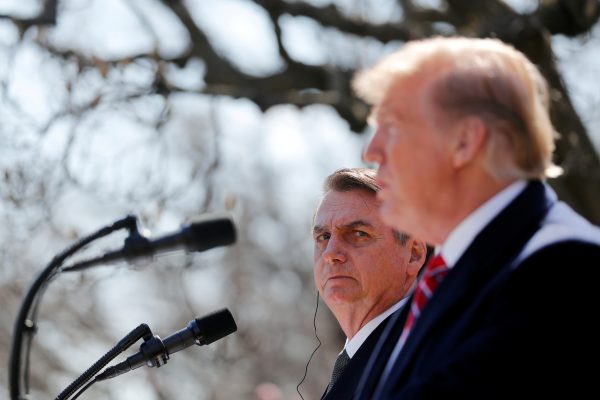Since the early days of the WTO’s predecessor — the General Agreement on Tariffs and Trade (GATT) — the topic of ‘differentiation’ among groups of member countries has frequently led to polarising discussion. But this time it is more serious. Countries need to act.
Some developing countries have become important players in global markets in their own right. Their exports have grown to represent almost half of total world exports, with the largest developing countries accounting for some three-quarters of that share.
The United States has proposed limiting the WTO’s practice of allowing countries to self-declare their developing status in order to receive special treatment. The message is clear: the United States expects all large players — advanced or emerging — to play by the same rules. China, India and others have reiterated that self-declaration is appropriate in the WTO context, highlighting the importance of SDT for development.
But the issue is not clear cut. While self-designation allows countries on the cusp of developed status to avoid commitments in WTO negotiations, finding the right differentiation criteria is tricky. The US proposal would result in some 30 countries — countries as diverse as Colombia, Indonesia or Vietnam — no longer being able to self-designate developing status, even when most clearly are.
China, India and others rebut that per capita indicators have priority when assessing development levels. But the issue is whether or not a country has a large enough share of world trade such that its policy decisions impact global prices. Agreeing on a formal categorisation of developing countries in the WTO context can turn into a byzantine negotiating exercise that, although not impossible, is unlikely to succeed.
Developing countries stick to the notion of SDT almost as a point of honour, but the literature on its impact is shaky and the empirical evidence is inconclusive at best. As the system benefits countries that actively participate in multilateral negotiations with reciprocal exchanges of concessions, the export sectors of typical interest to developing countries, such as agriculture, continue to face constraints.
Unilateral preferential schemes, while useful in fostering the export of specific products in beneficiary countries, also suffer shortcomings that limit their potential as a growth strategy. At the same time, by not engaging fully in the system, developing countries forego a commitment device to help them make good policy choices.
Yet institutional constraints inhibit the capacity of many developing countries to effectively negotiate trade agreements and leverage the opportunities of international trade — particularly in the case of smaller, poorer members. Unbalanced negotiating agendas frequently do not prioritise their interests.
In practice there is great heterogeneity across developing member countries and differentiation does occur. Implementation of the WTO Trade Facilitation Agreement (TFA) has witnessed significant differentiation as countries self-determine their need for transition periods and technical assistance. Nine developing members have notified their readiness to immediately implement all of their obligations and 30 others — including Brazil and China — immediately implemented more than 75 per cent of their commitments. Taiwan has also recently decided to give up SDT.
To bridge the developed–developing country dichotomy WTO members could take a combination of actions. Countries can follow Taiwan’s example — and now Brazil’s — and not claim differentiated treatment, without the need to first declare themselves ‘developed’.
Countries could also opt not to claim differentiated treatment in specific negotiations, as with the implementation of TFA commitments. This could be put into practice in the ongoing fisheries subsidies negotiations.
Flexible negotiating formats, in particular plurilateral agreements open to all, are a useful alternative for designing rules in areas of interest to groups of members. Negotiating in this way would benefit the WTO’s membership and increase transparency. Countries not wanting to join a negotiation would not be required to do so nor be allowed to block it.
Active cooperation by larger countries in trade negotiations also strengthens their bargaining position, allowing them to set a balanced negotiating agenda encompassing the interests of countries at different levels of development.
Negotiations should provide for differentiated treatment that takes into account the policy-making challenges in developing countries, without establishing permanent exemptions. These provisions should be time bound or have a clear threshold and phase-out criteria, as in the WTO Agreement on Subsidies and Countervailing Measures.
Technical assistance and capacity-building support for development and reform in developing economies is essential for success and is in the interests of both the recipients and the providers of assistance.
External contexts are changing. Preserving and improving the WTO is critical to global trade growth and development. SDT in its current format must be turned on its head. It is not about escaping multilateral rules or avoiding commitments; rather it is about engaging in rule making and contract-based market opening. This is the best way to defend against the unilateral actions that currently threaten international trade.
Anabel González is a non-resident Senior Fellow at the Peterson Institute for International Economics. She is a former Costa Rican Minister of Trade, World Bank Senior Director on Trade and Competitiveness and WTO Director of Agriculture.
A version of this article originally appeared here at the Peterson Institute for International Economics.

